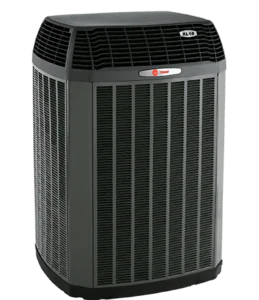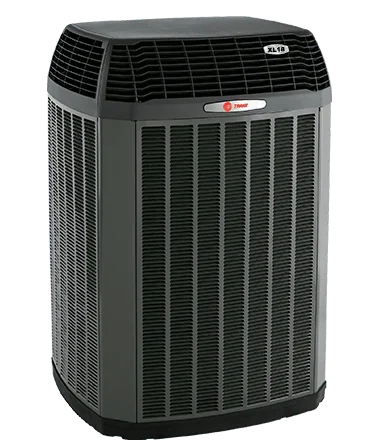Your most pricey asset, your HVAC system, is responsible for the comfort of your home. It keeps you warm in the cold winters so that you can live in comfort inside your house. Because heating units are one of the most significant investments we make in our homes, it’s only logical that we want to get the most out of them. Unfortunately, no matter how well-maintained your HVAC system is, it will eventually need to be replaced. Homeowners may experience concerns such as rising energy bills or poor indoor air quality as a result of an old or damaged HVAC system. Not sure if it’s time to replace your heating unit? Here are a few signs that your HVAC system needs to be replaced.

Your HVAC System Is More Than 10 Years Old
The heating system’s average lifespan is between 15 to 25 years, depending on a variety of conditions. If your system is more than 15 years old, it may seem to be working but in fact, it is likely to have grown far less efficient, potentially costing you a significant amount of money.
Many modern systems, such as those sold by Carrier, are significantly more energy-efficient. As systems age, they begin to show signs of wear and tear. The more a heating and cooling system is used, the faster it ages. Replacement becomes the more cost-effective alternative after a certain point because you’ll save money on repairs, maintenance, and energy costs.
Your Energy Bills Are Higher Than Normal
When you need more heat than usual, you should expect a minor increase in your energy expenditures. Heating systems lose efficiency as they get older. This is particularly problematic for individuals who do not have their systems serviced once or twice a year. While your energy prices will fluctuate with the seasons, bills from the same month in consecutive years should be fairly consistent. If you find a sudden increase in energy bills then it could be a sign of an old, faulty, or poorly maintained heating system.
Regular maintenance will extend the life of your air conditioning system and ensure that it runs as efficiently as possible, but an update will be required at some point. Upgrading to a high-efficiency air conditioner can save you up to 20% on your electricity bills.
Your Heating System Needs Frequent Repairs
It may be time to replace your heating system if it’s frequently asking for repairs. An outdated system that has to be repaired is most likely becoming inefficient. And, if you haven’t already noticed, your energy bills will begin to rise. If your heating system breaks, the cost of repair will tell you whether it’s cost-effective to replace it. Experts advise moving forward with a replacement if the repair costs half or more than a new unit.
The idea is that more extensive repairs usually indicate a machine that is nearing the end of its useful life. It’s not a good use of time, money, or energy to pay half or more of the cost of an HVAC replacement.
Heating Effectiveness
Your heating system will not successfully heat your home if it is not operating at peak efficiency. If some rooms in your residence aren’t heating at the temperature you set, it’s a sign you have an inefficient heater. Older systems may have trouble heating your entire home. Irregular heating is a clear sign that your heating system is inefficient to heat your room and you may need a new heating system. If your system is approaching 15 years old, it may be preferable to replace it with a new, more efficient system than suffer through years of misery.
Strange Noises
When heating systems become older, they may start with squealing, rattling, or banging noises. When a system is properly configured, it will run silently. A squealing noise could be a sign that the motor bearings are failing. The motor or the blower assembly could be causing the banging or rattling noise. When the fan turns on with a lot of rattling, it indicates that the motor is failing. Any strange noises could indicate that the system needs to be replaced.
You Notice an Increase in Dust Around Your Home
A heating system is designed to circulate air hot air in your home. Your HVAC system will filter out a lot of the dust and allergens in the air this way. If you see more dust around your house, it’s a sign that your HVAC system isn’t properly ventilating and filtering the air. The first step is to determine whether or not the air filters need to be replaced or cleaned. However, if this does not resolve the issue, your unit may no longer be able to function properly.
Your Air Conditioner, Furnace, or Boiler is Running a Lot
If your heating system seems to be running more than usual, it could be a clue that it needs to be replaced. A heating unit that is continually working will be the largest energy consumer in your home, so keep an eye on how often it runs.
Thermostat needs to be adjusted regularly
If you can’t manage to get the thermostat set to a suitable temperature in your rooms, your furnace may be the reason. If some rooms are hot and others are cold, the furnace may not be properly spreading the air. It may be time for a new heating system if the temperature in your home changes by several degrees from room to room.
Short Cycling
The temperature in your home is controlled by thermostats. Short cycling is when your heating system turns on and off for short periods. It’s caused by the heat exchanger overheating and shutting off the system. Short cycling reduces the efficiency of your heating system and could indicate that something is significantly wrong with it.
Wrapping up!
Heating systems are much needed in winters. If you’re having any of these issues, it’s probably time to replace your old furnace. An energy-efficient heating system will save you money while also ensuring that your home is safe and healthy.


0 Comments